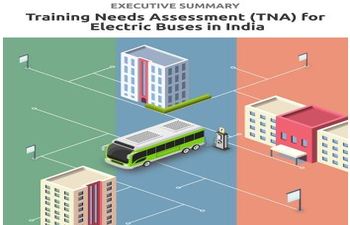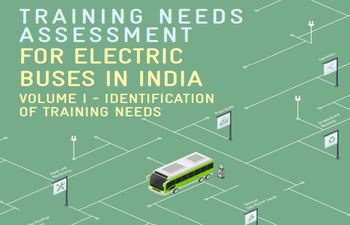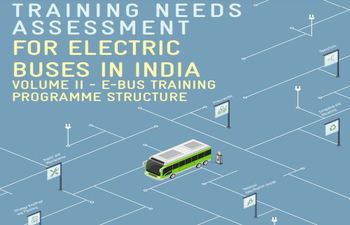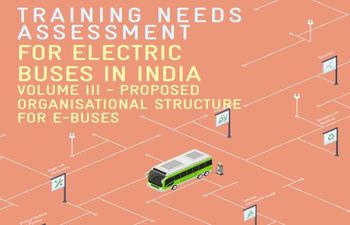Knowledge Hub
Fuzzy Set Qualitative Comparative Analysis (fsQCA) Applied to the Adaptation of the Automobile Industry To Meet the Emission Standards of Climate Change Policies via the Deployment of Electric Vehicles (EVs)
2021
Author(s): Llopis-Albert C, Palacios-Marqu´es D, Simon-Moya V
This study aids the design of the adaptation strategies of the automotive industry to meet global goals on climate change by means of a fuzzy-set qualitative comparative analysis (fsQCA), which makes it possible to measure the level of actors’ satisfaction.
Electric Vehicle Charging Network in Europe: An Accessibility and Deployment Trends Analysis
2021
Author(s): Falchetta G, Noussan M
This paper provides the first comprehensive bottom-up analysis of the EV charging network in Europe. Combining a crowd-sourced database of charging stations with accessibility data and algorithms, the authors produce maps of the travel time to the most accessible EV charging station across Europe, and also evaluate the charging points density and the number of active operators in different areas.
How To Measure the Impacts of Shared Automated Electric Vehicles on Urban Mobility
2021
Author(s): Nemoto EH, Issaoui R, Korbee D, Jaroudi I, Fournier G
This article proposes a method to measure the impacts of SAEV on mobility through a sustainability assessment. Based on an integrative literature study and on the context of AVENUE, a European project deploying automated shuttles in the public transport of European cities, a set of indicators is defined.
Circular Waste Management of Electric Vehicle Batteries: Legal and Technical Perspectives From the EU and the UK Post Brexit
2021
Author(s): Malinauskaite J, Anguilano L, Rivera XS
EVs have the ability to help decarbonize the transportation sector and combat climate change by emitting less greenhouse gases (GHGs) over their lifetime than traditional vehicles. In view of climate change, interdisciplinary strategies are needed to deal with end-of-life lithium-ion batteries (LIBs) used in electric vehicles (EVs) to prevent a possible waste crisis.

Training Needs Assessment (TNA) for Electric Buses in India: Executive Summary
2021
Author(s): Deutsche Gesellschaft für Internationale Zusammenarbeit (GIZ) GmbH
Under SMART-SUT project, GIZ has concluded a National level study on “Training Needs Assessment (TNA) for Electric Buses in India”. Under SMART-SUT project, GIZ has concluded a National level study on “Training Needs Assessment (TNA) for Electric Buses in India”.

Training Needs Assessment for Electric Buses in India: Volume I - Identification of Training Needs
2021
Author(s): Deutsche Gesellschaft für Internationale Zusammenarbeit (GIZ) GmbH
This volume identifies clear training needs in Public Transport Authorities (PTAs) across e-Bus life cycle functions, various departments, and hierarchies.

Training Needs Assessment for Electric Buses in India: Volume II - E-Bus Training Programme Structure
2021
Author(s): Deutsche Gesellschaft für Internationale Zusammenarbeit (GIZ) GmbH
This report aims to prepare a detailed and organised training programme structure for Public Transport Authorities (PTAs). It identifies a total of eight e-Bus training modules across its life cycle stages – i.e. from fundamentals and safety; technology selection; financial planning and strategy; procurement; operations; monitoring and control; repair and maintenance; and end-of-life, scrapping, and recycling.

Training Needs Assessment for Electric Buses in India: Volume III - Proposed Organisational Structure for E-Buses
2021
Author(s): Deutsche Gesellschaft für Internationale Zusammenarbeit (GIZ) GmbH
The Volume – III report, considers two operating models for e-Buses, namely 1) PTAs (Public Transport Authorities) with all inhouse e-Bus operations and 2) PTAs (Public Transport Authorities with SPV structure and PPP model, requiring no Central Workshop.
Residential Electric Vehicle Charging Datasets From Apartment Buildings
2021
Author(s): Sørensen AL, Lindberg KB, Sartori I, Andresen I
The publication "Analysis of household EV energy flexibility potential based on real-world charging reports and smart metre data" is the source of this data. Residential electric vehicle (EV) charging in apartment buildings is the subject of the datasets presented.
Online Electric Vehicle Charging With Discrete Charging Rates
2021
Author(s): Martijn HH, Uiterkamp S, Marco ET, Hurink GL
This paper presents an online EV scheduling approach based on discrete charging rates that does not require detailed predictions of this uncertain data. Instead, the approach requires only a prediction of a single value that characterizes an optimal offline EV schedule.



